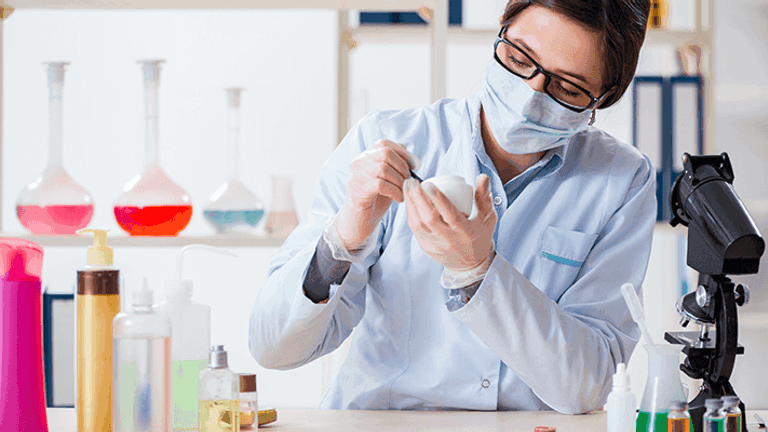Watch Out For These 7 Harmful Ingredients In Your Makeup
Most of us use cosmetics in some form or the other- be it makeup, skincare, haircare, talcum powder, deodorants, or nail paints. While these products have become a part of our daily routine, did you know that they could actually be really harmful for your body? Well, not all but some ingredients have been proven to be doing more harm than good.
So being an informed consumer is important. Here are some ingredients that you should avoid in your skincare, haircare, and makeup products.
Parabens
If you are noticing many bands going “paraben-free”, then you should also know the reason behind it. Parabens are widely used preservatives in cosmetics and personal care products. Their job is to stop the growth of microbes like fungi and bacteria in cosmetic products, especially those that are stored in warm and moist places like the bathroom. Parabens are often found in makeup products like mascara and foundation and they can penetrate the skin easily. Studies have shown that some parabens can mimic the activity of the hormone estrogen in the body's cells and is associated with certain forms of breast cancer. So they interfere with reproduction, the nervous system, and the immune system, scary, right? While you are checking your makeup for parabens, try to keep away from propyl, butyl, isopropyl, isobutyl and methyl parabens—all forms of parabens.
Silicone
Silicones are derived from silica, a common mineral found in the Earth’s crust. Silicones are commonly used in cosmetics to improve the texture and feel of products. From giving moisturisers a luxurious and silky texture to creating a film on skin to lock in the hydration, silicones are everywhere. Silicones are also found in makeup products like BB Cream, foundation, primers, and cream-based cosmetic as they fill in the crease of the skin, making it look youthful. They can make the skin appear smoother and more radiant due to their light-reflective properties. But silicone can be hard to remove and may cause build-up over time. This clogs the pores in the skin, leading to breakouts. The biggest problem with silicones is that these aren’t biodegradable. So, when you wash down the silicones, they travel down the drain and land up in the sea polluting them and having a negative impact on the environment.
Mineral oil
Often used in skincare products likes lotions, creams, and ointments, mineral oil is also a common ingredient in makeup. Also known as paraffin oil, mineral oil is a colourless and odor-free oil extracted as a by-product of the distillation of petroleum. It makes the skin soft an is a cheaper alternative to natural oils and hence is found in abundance in cosmetics. Products with mineral oil and paraffin can damage the skin’s natural oil barrier resulting in increased loss of hydration. The oil, being a by-product of chemical processing, can clog the pores on the skin suffocating it.
Phthalates
Phthalates (P is silent) are industrial plasticizers widely used in skincare products to moisturise and soften skin, and to impart flexibility to nail polish after it dries. Phthalates initially were used to soften PVC plastic which slowly moved to being used as solvents in cosmetics and other consumer products. These can damage the liver, kidneys, lungs, and reproductive system. They are also known to be endocrine disruptors and have been linked to increased risk of breast cancer and reproductive birth defects in males and females. These are common ingredients in deodorants, perfumes, hair sprays, moisturisers and nail polish and nail polish treatments.
Fragrance
Fragrance is often added separately to a lot of cosmetic products. Fragrance makes the products smell heavenly and appealing to the customers but often contains chemicals that can cause allergic reactions. Widely used in perfumes, colognes, EDT, deodorants, shampoos & conditioners, body wash and skincare, fragrance is also used in makeup products like lipsticks, bronzer and blush etc. to make them smell good. Fragrance mixes have been associated with allergies, dermatitis, respiratory distress and potential effects on the reproductive system. You may want to consider avoiding any product that includes the term “fragrance” in its list of ingredients.
Lead
Lead is often found in a wide range of lipsticks, from affordable to high-end brands. Lead is a neurotoxin and can have an effect on the brain. Low amounts of lead can cause weakness, increases in blood pressure, and anaemia; higher exposure can severely damage the brain, kidneys, and other organs—and it can be life-threatening. Research has indicated that lead exposure can be dangerous, even in the smallest quantity. Medical experts have confirmed that any level of lead exposure is unhealthy. Lead does not show up on ingredient labels, so next time you go lipstick shopping, try to dig details of the ingredients and steer clear of lead, even if it says ‘in safe amount’.
Preservatives
It’s common practice to add chemical preservatives to cosmetics to retard growth of bacteria and mold and increase a product’s shelf life. Parabens and formaldehyde-releasing preservatives are commonly used preservatives in makeup and personal care products. These are toxic to humans and lead to problems like endocrine disruption, developmental toxicity, reproductive toxicity, irritation, and many other fatal health concerns like Cancer. The cosmetic industry is trying to avoid the use of toxic chemicals and move towards using plant oils or extracts to act as natural preservative. Meanwhile, it’s best to avoid makeup that contains preservatives until more feasible and safe options are available.
So next time you go gaga over a new makeup product, make sure you check the ingredients list before adding it to cart!
Other Related Stories
Zinc benefits for skin: Zinc is important for your overall health but skincare too. Here’s a guide on multiple amazing zinc benefits for the skin.




